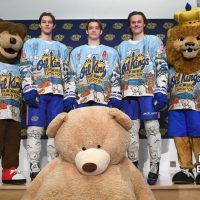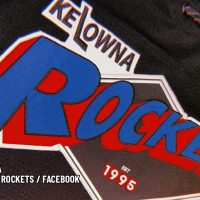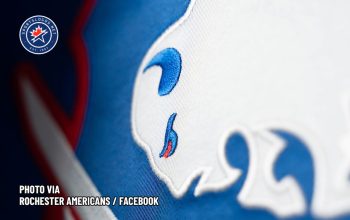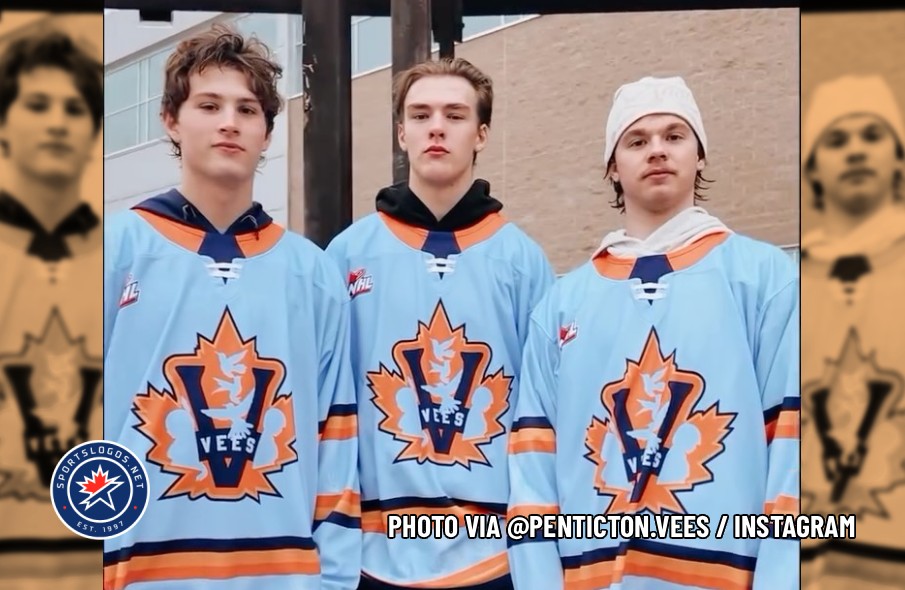
The Western Hockey League’s Penticton Vees have enlisted the help of a young local artist to honour local Indigenous peoples later this week.
The Vees will host their Indigenous Night on Friday, November 28, when they take on the Vancouver Giants at the South Okanagan Events Centre. To mark the occasion, the Vees worked with 16-year-old Indigenous artist Delaney Gabriel, a member of Sylix Nation and the Penticton Indian Band, to design a special edition jersey.
The jersey has a light blue base, with two sets of stripes around the waist and each sleeve: navy blue, light orange and a darker orange. The crest on the front of the jersey retains the letter V, the banner reading “VEES” and the maple leaf shape from the team’s primary logo, but inside is a special light blue graphic on an orange background.
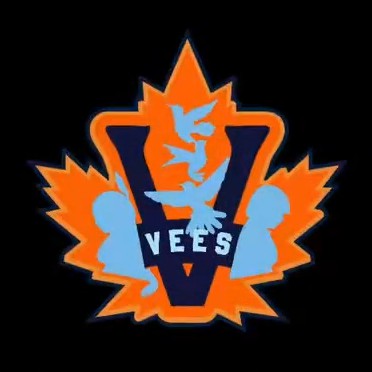
“I have made this design because it resembles freedom and the loss that our ancestors went through while still leaving room for the Vees logo. The two children, one has long hair and a feather representing the culture and sacredness. The other a child in a uniform shirt and short hair, which represents youth and what they endured in residential schools (they cut their hair and stripped them of their cultural identity). The birds represent freedom, and their freedom, to gain what ancestors and relatives lost for centuries are now starting to gain it back.”
— Delaney Gabriel, jersey designer
The collar of the jersey is orange with a navy blue panel and white laces at the front. Game-worn jerseys will be auctioned off after Friday’s game, though the Vees didn’t specify which charity or organization the proceeds would benefit.

Orange has become a colour synonymous with truth and reconciliation in Canada and with remembering the impacts of the residential school system. It was inspired by the story of Phyllis Webstad, a residential school survivor and the founder/CEO of the Orange Shirt Society. According to the society:
When Phyllis was just six-years-old, she was forced to attend St. Joseph’s Mission Residential School near Williams Lake, British Columbia. Her grandma gifted her an orange shirt to wear on her first day of school, but upon arrival, her shirt was forcibly removed. No matter how much Phyllis cried or protested, her special new shirt was never returned. That cruel action resulted in Phyllis feeling unimportant and as if she did not matter. The colour orange became a symbol of the effects of Indian Residential Schools and a physical symbol for ‘Every Child Matters’.
“I would like to thank the Penticton Vees for hosting this event and would like to welcome the community of Penticton and surrounding areas to attend this Indigenous celebration,” said Penticton Indian Band Chief Greg Gabriel in the Vees’ announcement.

